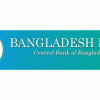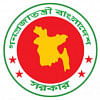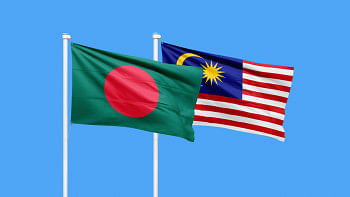Economics Nobel for Central Bankers?

The Nobel Prize in Economics this year was awarded to three American economists for their contribution to expounding the role of modern financial institutions, including the central bank, and for providing insights into bank failures and "runs." The three recipients are Ben Bernanke of the Brookings Institution, Douglas Diamond of the University of Chicago, and Philip Dybvig of Washington University in St Louis. Bernanke was chairman of the US Federal Reserve in 2006-2014. The other two are academicians.
The Nobel committee said that their work in the early 1980s "have significantly improved our understanding of the role of banks in the economy, particularly during financial crises. An important finding in their research is why avoiding bank collapses is vital." They added that this was "invaluable" in steering the US (and the global) economic systems during the 2008-09 financial crisis and the coronavirus pandemic downswing in 2020-2021.
A key insight that has shaped policy in the 21st century is that banks are not merely the neutral intermediaries between savers and borrowers, but they offer vital services to the wider economy by gathering information on borrowers and facilitating the transfer of resources from the savers to the investors. Banks are also entrusted to assess to whom to extend credit and to ensure that projects with high (but risky) long-run returns obtain funding by monitoring borrowers on behalf of lenders.
These days, we take for granted how central banks and the regulatory framework help to steer the economy and the financial institutions during times of crisis. But any student of economic history is aware of how a simple stock market failure brought about a major catastrophe during the Great Depression in 1929-1933.
The seminal work by this year's Nobel laureates took shape at the beginning of the 1980s. Bernanke showed that the financial disruptions of 1929-33 reduced the efficiency of the credit allocation process, and that the resulting higher cost and reduced availability of credit acted to depress aggregate demand, thus leading to the unusual length and depth of the Great Depression. The takeaway was that bank failures can propagate a financial crisis rather than simply be a result of the crisis. These findings informed the decisions of the Federal Reserve, led by the then Fed chair Bernanke to steer the US financial system, and markets everywhere else, and avoid a meltdown in the aftermath of the bankruptcy of Lehman Brothers that occurred on September 15, 2008.
Dybvig and Diamond developed theoretical models that explain why banks exist, how their role in society makes them vulnerable to rumours about their impending collapse, and how society can lessen this vulnerability. These insights form the foundation of modern bank regulation and the ecosystem in which a country's central bank plays a pivotal role in shepherding financial institutions, and particularly so with the advent of digital space.

Another area of concern for the Nobel trio has been bank failures that create problems for the rest of the economy, which is often compounded by "run" on any bank. A bank run is a situation when a large number of its clients withdraw their money all at once. In a modern banking system, known as a fractional cash reserve system, a bank run may occur over concerns regarding the bank's solvency.
Fractional reserve banking entails a bank keeping only a portion of the money deposited on the premises. If depositors expect the bank to fail, the ensuing panic can become self-fulfilling. When numerous consumers withdraw their funds simultaneously, it leads to a significant cash shortage and stops financial institutions from providing loans to borrowers. In the worst case, a bank is pushed into insolvency and becomes bankrupt. An example could be the crisis faced by the Padma Bank, formerly known as The Farmers Bank, in Bangladesh.
Bank runs are a common feature of the extreme crises that have played a prominent role in monetary history. The research that followed in the 1980s helped to show how better regulations can reduce the risks, and how state intervention can restore stability – albeit at a considerable cost to taxpayers. In this context, the example of People's Leasing and Financial Services, managed by PK Halder, illustrates the risk embedded in unregulated financial service companies that embezzle money after exploiting the trust of the average depositor.
Well, the prize announcement did not go down well with everyone. David R Henderson of the Hoover Institution of Stanford University mocked the award committee in a Wall Street Journal op-ed, "The winners hold views on dealing with financial crises that many monetary economists find strange." Prestigious weekly journal Nature said, "Economists win the Nobel prize for showing why banks fail… [their] work explained how finance greases the wheels of capitalism – and why the system is inherently unstable."
The role of the central bank has evolved over time. A central bank has one universally accepted role: to maintain a steady supply of money. However, it also acts as a regulator of commercial banks. In Bangladesh, as well as in other countries, the central bank is also entrusted with maintaining the foreign exchange rate. In the US, the Federal Reserve performs five key functions, but the most visible one is to regulate the money supply and conduct the nation's monetary policy to promote maximum employment and stable prices.
Two of the much-dreaded lessons from the Great Depression was that a central bank can play an active role in creating liquidity or curtailing it. It can also prevent runs on the banks. Since the last global financial crisis in 2008-09, we've seen significant structural changes in the banking sector. As a report published by the Bank for International Settlements said, "The crisis revealed substantial weaknesses in the banking system. Technological change, increased non-bank competition and shifts in globalisation are still broader environmental challenges facing the banking system."
Dr Abdullah Shibli is an economist and works for Change Healthcare, Inc., an information technology company. He also serves as senior research fellow at the US-based International Sustainable Development Institute (ISDI).

 For all latest news, follow The Daily Star's Google News channel.
For all latest news, follow The Daily Star's Google News channel. 










Comments